[Part 14]
[Benton Bradberry’s 2012 book, “The Myth of German Villainy” is a superb, must-read, revisionist look at how the German people have been systematically, relentlessly and most importantly, unjustly vilified as the arch criminal of the 20th century. Bradberry sets out, cooly and calmly as befits a former US-Navy officer and pilot, to show why and how the German people have been falsely accused of massive crimes and that their chief accuser and tormenter, organized jewry is in fact the real party guilty of monstrous crimes against Germans and the rest of the world.
In Part 14 the process of unwinding some of the injustices of the Versailles Treaty imposed on Germany (Ch. 14) and Germany’s hosting of the 1936 Olympics (Ch.15) are described.
On March 15, 1935 Hitler announced his decision that Germany would openly defy the military limitations set by the Versailles Treaty and re-arm. Then, a year later, three German Army battalions crossed the bridges over the Rhine and entered the industrial heartland of Germany known as the Rhineland. This demilitarized area, the Rhineland, included all territory west of the Rhine River, stretching over to the French border, as well as a section east of the river. The Rhineland included the cities of Cologne, Dusseldorf and Bonn. A few weeks later a plebiscite was held and 98.8% voted approval of the reoccupation of the Rhineland.
In April 1931 Germany won the bid to host the 1936 Olympic Games, but once the National Socialists came to power in 1933 American Jewish organizations immediately demanded that some other venue be chosen or the games boycotted. Fortunately Avery Brundage, President of the American Olympic Committee, saw this attempt as just another “Jewish-Communist conspiracy” against Germany, and to his very great credit, decided, despite this pressure, that America would participate in the Games in Berlin as scheduled.
Germany, at less than half of the population of the United States, won 89 medals to America’s 56 — KATANA.]
NOTE: The author has very generously given me permission to reproduce the material here — KATANA.
The book can be bought at Amazon here: The Myth of German Villainy
The Myth of
German Villainy
by
Benton L. Bradberry
Contents
[Clicking on a link in the Contents here will take you to that Part, in a separate post]
[Part 01]
Chapter 1 – The Myth of Germany as an Evil Nation
Germany’s Positive Image Changes Overnight
[Part 02]
Chapter 2 – Aftermath of the War in Germany
The Versailles Treaty
Effect of the Treaty on the German Economy
Was the War Guilt Clause Fair?
Did Germany Really Start the War?
[Part 03]
Chapter 3 – The Jewish Factor in the War
Jews at the Paris Peace Conference
Jews in Britain
[Part 04]
Chapter 4 – The Russian Revolution of 1917
Bolsheviks Take Control
Jews and the Russian Revolution
Origin of East European Jews
Reason for the Russian Pogroms Against the Jews
Jews Leave Russia for America
Financing the 1917 Revolution
Jews in the Government of Bolshevik Russia
[Part 05]
Chapter 5 – The Red Terror
Creation of the Gulag
Bolsheviks Kill the Czar
Jews as a Hostile Elite
The Ukrainian Famine (Holodomor)
[Part 06]
Chapter 6 – The Bolshevik Revolution Spreads Throughout Europe
Jews in the Hungarian Revolution
Miklos Horthy Saves Hungary
Jews in the German Revolution
The Spartacist Uprising in Berlin
Jewish Bolsheviks Attempt to Take Italy
Jewish Bolsheviks Attempt to Take Spain — The Spanish Civil War
Czechoslovakia in Danger of Communist Takeover
The Comintern’s Aim? World Domination!
[Part 07]
Chapter 7 – The Nation of Israel
History of the Expulsion of Jews
[Part 08]
Chapter 8 – Jews in Weimar Germany
Jews Undermine German Culture
[Part 09]
Chapter 9 – Hitler & National Socialists Rise to Power
The 25 Points of the National Socialist Party
[Part 10]
Chapter 10 – National Socialism vs. Communism
National Socialism
Jews Plan Marxist Utopia
[Part 11]
Chapter 11 – Jews Declare War on Nazi Germany
Text of Untermeyer’s Speech in New York
The Jewish Persecution Myth
Effect of Boycott on the German Economy
Jewish Exaggerations are Contradicted by Many
[Part 12]
Chapter 12 – The Nazis and the Zionists Actually Work Together for Jewish Emigration out of Germany
The Nuremberg Laws – 1935
The Zionist Movement
[Part 13]
Chapter 13 – Life in Germany Under Hitler
Night of the Long Knives
1934 Annual Nazi Rally at Nuremberg
Hitler Revives the German Economy
Hitler Becomes the Most Popular Leader in the World
[Part 14]
Chapter 14 – Hitler Begins Reclamation of German Territory
Chapter 15 – The 1936 Olympics
[Part 15]
Chapter 16 – “Anschluss”. The Unification of Austria and Germany
Austrian Economy Revived
Austria’s Jews
[Part 16]
Chapter 17 – Germany Annexes the Sudetenland
[Part 17]
Chapter 18 – War with Poland
The Polish Problem
Hitler’s Proposal to Poland
Kristallnacht
German-Polish Talks Continue
Jews Influence both Roosevelt and Churchill
British and American Political Leaders Under Jewish Influence
Roosevelt’s Contribution to Hostilities
Lord Halifax Beats the War Drums
Germany Occupies Bohemia and Moravia
Roosevelt Pushes for War
Anti-war Movement Becomes Active
Poles Murder German Nationals Within the Corridor
[Part 18]
Chapter 19 – The Phony War
Russo-Finnish War
The Norway/Denmark Campaign
German Invasion of Denmark and Norway
Churchill Takes Chamberlain’s Place as Prime Minister
[Part 19]
Chapter 20 – Germany invades France Through the Low Countries
The Phony War Ends.
Churchill the War Lover
The Fall of France
Hitler Makes Peace Offer to Britain
[Part 20]
Chapter 21 – The Allied Goal? Destruction of Germany!
[Part 21]
Chapter 22 – Germany as Victim
Rape and Slaughter
Jewish Vengeance
The Jewish Brigade
[Part 22]
Chapter 23 – Winners and Losers
Chapter 14
Hitler Begins Reclamation
of Germany
One of Hitler’s goals as Chancellor of Germany was to make Germany whole again. He was determined to regain control of lands taken from Germany by the Versailles Treaty but also to bring ethnic Germans living outside the Reich back into Germany. If his plans were to have any chance of succeeding, however, it would first be necessary for Germany to re-arm. The Versailles Treaty had limited Germany to a total of 100,000 men at arms, a pitifully inadequate military force to support his ambitions. After mulling over what to do, Hitler convened a meeting with the Army’s General Staff and members of his Cabinet on March 15, 1935 and announced his decision that Germany would openly defy the military limitations set by the Versailles Treaty and re-arm. Not a single person present objected. All enthusiastically approved.
Propaganda Minister Joseph Goebbels held a press conference the very next day and announced to the world that the Fuhrer had decided that Germany would reintroduce military conscription and build a new Army consisting of 36 divisions, totalling 550,000 men. This was a brazen violation of the Versailles Treaty, and an open invitation for retaliation by France and Britain.
The German leaders then waited anxiously to see how Britain and France would react. Some of the more cautious generals were worried that France might attack Germany immediately. After all, France was well armed, with the largest army in Europe and Germany would have been powerless to defend itself. But nothing happened; absolutely nothing. Hitler had gambled and won!
Hitler knew that France was struggling with internal political problems and that Britain was still in the depths of the depression. Neither country, he wagered, had the stomach to take military action against him, and he turned out to be right. Hitler also had moral suasion on his side. Any sovereign country, including Germany, has an intrinsic right to the means of self defense and of defending its sovereignty. It was obvious that Germany could not do so with a military force limited to 100,000 men. In a positive light, Hitler’s decision to re-arm Germany could be seen as the “responsible” thing for a national leader to have done.
June 1935 – Hitler re-arms Germany. Here, new recruits line up for their enlistment physicals.
But Hitler was smart enough to understand that he needed to follow up his proclamation by being conciliatory. A couple of months after the conscription announcement, he spoke before the Reichstag and declared that, “Germany wants peace…None of us means to threaten anybody.” And surely, he meant it. He wanted to reclaim Germany’s lost lands, but he did not want war.
He announced before the Reichstag a thirteen-point peace program. He said that Germany would respect all other provisions of the Versailles Treaty, including the demilitarization of the Rhineland. Germany is ready, he said, to cooperate in a collective system for safeguarding European peace. He further stated that Germany was ready to conclude pacts of non-aggression with her neighbours.
This seemed to soothe the nerves of his gun-shy neighbouring countries. This method of diplomacy set a pattern which Hitler was to follow thereafter; a forceful announcement on a Saturday (Hitler’s Saturday surprises), followed by a conciliatory speech. After each such initiative, he permitted time to lapse so that everything could settle back down before making his next move. He knew what he wanted and knew what he was doing, and he played his hand very carefully.
He let a year pass before he took his next big gamble; the reoccupation of the Rhineland. Early Saturday morning on March 7, 1936, three German Army battalions crossed the bridges over the Rhine and entered the industrial heartland of Germany known as the Rhineland. This demilitarized area, the Rhineland, included all territory west of the Rhine River, stretching over to the French border, as well as a section east of the river. The Rhineland included the cities of Cologne, Dusseldorf and Bonn.
Hitler’s Foreign Minister, Constantin von Neurath, summoned the French, British and Italian ambassadors to his office at 10 A.M. the same morning and handed them a memorandum which stated that the German government had “restored the full and unrestricted sovereignty of the Reich in the demilitarized zone of the Rhineland.” This, of course, was also a violation of the Versailles Treaty.
At noon on the same day, Hitler appeared before a hastily called Reichstag assembly and announced what had happened. The totally surprised Reichstag members jumped to their feet in jubilation and began cheering wildly, with shouts of “heil” to the Fuhrer.
When they calmed down and returned to their seats, Hitler continued speaking. He said:
“First, we swear to yield to no force whatever in the restoration of the honor of our people, preferring to succumb with honor to the severest hardships rather than to capitulate. Secondly, we pledge that now, more than ever, especially for one with our Western neighbour nations…We have no territorial demands to make in Europe!…Germany will never break the peace.”
Saturday, March 7, 1935 – German troops cross a bridge over the Rhine River and enter the Rineland.
Hitler and his generals again waited nervously to see how France and Britain would react. The German troops even had orders to immediately abandon the Rhineland and cross back over the bridges if France were to attack. But, as before, nothing happened. The French and the British did nothing. The horrors of the First World War were too fresh in their memory, and the French in particular simply did not have the stomach for another war with Germany. The British did not act because most British leaders had already come around to the belief that the Versailles Treaty was unreasonable in many aspects and most of them sympathized with Hitler’s position.
This had been a tremendous gamble for Hitler because the French, with their one hundred division army could easily have overwhelmed the 30,000 lightly armed German troops now in the Rhineland, in which case Hitler could have lost everything. Hitler was later to admit:
“The 48 hours after the march into the Rhineland were the most nerve wracking in my life. If the French had marched into the Rhineland, we would have had to withdraw with our tail between our legs…”
Several of Hitler’s generals were extremely fearful of the bold move, but his Foreign Minister, von Neurath, had calmly assured him, “You can risk it. Nothing will happen.” Hitler learned to ignore the trepidations of his generals and use his own judgment in such matters.
The German people in the Rhineland welcomed the troops with jubilation. The soldiers were met by German priests who conferred blessings upon them. Women threw flowers in their path. The people in Cologne went wild with joy. Inside Cologne’s magnificent cathedral, Cardinal Schulte lavishly praised Hitler for what he had done.
[Add. image — Hitler, Goebbels and Wagner near the radio during the Saarland vote, 1935. Our picture from left to right: Gauleiter of Munich-Upper Bavaria, Adolf Wagner, Reich Propaganda Minister Dr. Joseph Goebbels, Hitler and the Reich Press Chief Otto Dietrich in front of the radio in Hitler’s private apartment at Prinzregentenplatz in Munich during the announcement of interim results of the Saarland vote on 13 January 1935.]
A few weeks later, on March 29th, another plebiscite was held. 99% of the registered voters went to the polls, and 98.8% voted approval of Hitler’s reoccupation of the Rhineland. Hitler had become the most popular man in Germany.
With this accomplishment securely in the bag, Hitler then went back to Berchtesgaden, his retreat in the Bavarian mountains, to relax while things calmed down, but also to ponder his next move, for he had many more moves to make in implementing his plan of irredentism for Germany.
Meanwhile, in Berlin and throughout Germany, preparations were underway to host the coming Summer Olympics. The Berlin Olympics would be a big opportunity for the Nazis to show off the new Germany they had created to people from all over the world.
Chapter 15
The 1936 Olympics
Berlin won the bid in April 1931 to host the 1936 Olympic Games over Barcelona, its number one contender. The bid for the games had been won two years before the Nazis were elected into office in Germany. When the Nazis came to power, American Jewish organizations immediately demanded that some other venue be chosen for the games other than Berlin. The American Jewish Congress and the Jewish Labor Committee staged rallies to oppose America’s participation in the games if the games were not moved out of Berlin.
[Add. image — A pedestrian pauses to read a notice announcing an upcoming public meeting, scheduled for Tuesday, December 3, to urge Americans to boycott the 1936 Berlin Olympics. New York, United States, 1935.]
Avery Brundage, President of the American Olympic Committee, to his very great credit, decided, despite this pressure, that America would participate in the Games in Berlin as scheduled. International Jewry already had a propaganda campaign under way against the Nazis long before they came into office, and Brundage took the view that the attempted boycott of the Olympic Games was just another “Jewish-Communist conspiracy” against Germany, which, of course, it was. He stated that Jewish athletes were not being treated unfairly in any way by anyone. The Jews were nevertheless relentless.
[Add. image — Avery Brundage (born Sep 28, 1887) competed in the decathlon at the 1912 Olympic Games. He became president of the U.S. Olympic Association and Committee in 1929, then served as president of the International Olympic Committee (1952–72).]
The story most repeated about Hitler and the Olympic Games in Berlin, is that Hitler refused to shake the hand of the American black athlete Jesse Owens after he had won a race. This myth is widespread, and appears as fact in many journals and publications today, including, for example, in Microsoft’s Encarta Encyclopedia.
What actually happened is that Hitler personally attended the first day of the track and field competition on August 2, 1936, and personally congratulated the German athlete Hans Wollke, who was the first German to win a gold medal in the Olympics since 1896. Throughout the rest of the day, Hitler continued to receive Olympic champions, both German and non-German, in his VIP box.
The next day, August 3, the chairman of the International Olympic Committee, Comte Bailet-Latour, approached Hitler early in the morning and told him that he had violated Olympic protocol by personally congratulating each Olympic winner. Hitler duly apologized and said that he would hence forward refrain from shaking the hands of the winners.
Later in the same day, when Jesse Owens won his gold medals, Hitler did not shake his hand…or anybody else’s, during the remainder of the games.
It is, therefore, utterly false to claim that Hitler deliberately chose to snub Owens. In his autobiography, “The Jesse Owens Story,” 1970, Owens recounted how Hitler had stood up and waved to him:
“When I passed the Chancellor,” he wrote, “he arose, waved his hand at me, and I waved back at him. I think the writers showed bad taste in criticizing the man of the hour in Germany.”
During the afternoon of the first day, Hitler and his entourage left the stadium early because rain threatened. In fact, it had already begun to sprinkle. Coincidentally, the American black, Cornelius Johnson, had just barely beaten his American teammate in the high jump to win a gold medal shortly before Hitler left the stadium. The anti-German propagandists reported through the International Jewish press that Hitler had “stormed out” of the stadium in a tantrum because a black man had won an event. Hitler was much too sensitive to world opinion to have left himself open to negative publicity by any such inappropriate behavior.
But the facts would never stand in the way of a good anti-Nazi story. The Jewish owned New York Times carried on its front page, “Hitler greets all medalists except Americans,” the day after the first competitive events.
The headline on the next day’s paper read, “Hitler ignores Negro medalists.” Not by coincidence, the New York Times had earlier led the movement to boycott the Berlin games. Other newspapers picked up the story. “Hitler Snubs Jesse,” read the huge, bold headline of a black Cleveland paper, Call and Post. The Baltimore Afro-American carried the headline “‘Adolf’ Snubs U.S. Lads“. These were deliberate lies. Nothing of the kind had happened.
The Baltimore African-American newspaper, August 8, 1936.
Another story spread around about the 1936 Olympics by the anti-German press was that Owens’ victory “disproved the Nazi master race theory.” If anything, the Games supported that idea, if, in fact, such an idea even existed. Germany won 89 medals, while the United States, with two and a half times Germany’s population, won 56.
That Germany claimed to be the “master race” is another myth with no basis in fact; just more anti-German propaganda from the International Jewish press. The Nazis never made any such claim (though the Jews do claim to be God’s chosen people), and Hitler never used the term, “master race,” or anything close to it to describe the German people. Hitler used the term “Aryan” to represent all the Germanic peoples of Europe, including the British, Dutch, Swedes, Norwegians, Fins, Swiss, and all the other peoples of Europe of Germanic origin. Hitler believed that the Aryan people were culturally superior to most of the rest of mankind as manifested in all their achievements. He wrote in Mein Kampf:
“All the human culture, all the results of art, science, and technology that we see before us today, are almost exclusively the creative product of the Aryan…”
This idea was generally accepted by all Europeans at the time, and could hardly be disputed given the fact that almost all civilizational advances were accomplished by these people. The British have always considered themselves to be a superior race. The anti-German international Jewish press deliberately misinterpreted these general concepts to mean that the Germans considered themselves alone to be the “Master Race.” In fact, no such claim was ever made.
In what was to become an act of extreme irony, President Franklin D. Roosevelt, then running for re-election and concerned about the reaction of the southern states, refused to see Jesse Owens at the White House. Owens was later to remark that it was Roosevelt, not Hitler, who snubbed him.
Jesse Owens was the citizen of a country whose racism would have made Hitler blush. In Hitler’s Germany, Jesse Owens could share a bus or tram ride with white people. Treated equally in all respects before the law, he could sit in a movie theater next to whites, use public toilets, dine in restaurants, and stay in hotels without any discrimination being shown towards him. There were many things he could do in Hitler’s Germany that were forbidden at home in the United States. In the United States black athletes were required to eat separately from their white fellow athletes. If they were allowed to share the same hotel at all, which was unlikely, it would be necessary for them to use the service entrance. There were no blacks on any major league baseball team and there were no black swimmers. This was in the enlightened north. In the southern states there was no possibility of a black being allowed to participate in any sport, except to compete with other blacks. For the Jewish press to have smeared Hitler and the German people in general as “racists” was hypocritical in the extreme.
Jesse Owens evidently enjoyed his time in Hitler’s Germany immensely. In Germany he received a lot of pre-Olympic media hype and the German people idolized him.
“Once at the stadium, the mere appearance of Jesse Owens’ head from some pit below the stands would cause sections of the crowd to break out in chants of, ‘Yes-sa Ov-enss! Yes-sa Ov-enss!’” — Richard D. Mandell. “The Nazi Olympics.”
“Some mornings at the Olympic village the athletic hero of the hour was awakened by amateur photographers who flocked outside his bedroom window to click at the athlete before he could gather poise for one of his many appearances before the mobs in Berlin.” — Richard D. Mandell. “The Nazi Olympics.”
“Jesse Owens was cheered as loudly as any Aryan.” — Lawrence N. Snyder; Jesse’s coach. Saturday Evening Post, Nov. 7th, 1936.
When Jesse Owens first returned to the states, he denied that he had been snubbed by Hitler or that he had been mistreated in any way. But he learned soon enough that he could use the “snub myth” to his own advantage. In his postwar interviews, postwar public addresses, and in his “ghosted” articles and books, he began to claim that Hitler had, indeed, refused to shake his hand, and he also began to repeat the lie that Hitler “left the stadium in a tantrum” when a black athlete won a medal, because that is what people wanted to hear. As he discovered that anti-Hitler stories resonated well with American audiences, he began to exaggerate his “mistreatment” stories even further. Such exaggerations finally became the central feature of his talks as he described how emotionally torn apart he was by the “snubs” and other mistreatment by Hitler and the Nazis. The reality is that Jesse Owens was given the warmest ovation of his life by the German spectators, including Hitler.
Yet another myth still commonly believed as the result of the anti-German propaganda is that American blacks “ran away” with the gold medals during the Berlin games. It is true that Owens won four gold medals, but outside of track and field, the Germans dominated the Olympic Games of 1936 by winning more medals than all other participants combined.
These are only some of the flagrant distortions about Nazi Germany created by the International Jewish propaganda campaign. Since the victors write the historical accounts of events, Nazi Germany has been permanently smeared with these blatantly false stories.
Hitler’s “Film Expert to the National Socialist Party,” Leni Riefenstahl, made a documentary of the 1936 Olympic Games, called, “Olympia”, which nearly matched her earlier film, “Triumph of the Will”, in its propaganda value to the Third Reich. The film won many international awards.
Leni Riefenstahl shooting the 1936 Olympic Games in Berlin
Germany scored a huge propaganda coup with the 1936 Olympic games, despite all efforts of the International Jewish press to denigrate it. The world was able to see firsthand “the new Germany” which had been created by Nazi rule. German hospitality won high praise from visitors from all over the world, and Adolf Hitler was seen as the man of the hour.
Despite efforts being made by international Jewry to discredit Nazi Germany in every way possible, most objective reports were favorable to Germany as a result of the Games. Frederick Birchall reported in the New York Times that the Games put Germany “back in the fold of nations,” and even made them “more human again.”
Hitler at the opening ceremony of the 1936 Olympic Games.
Berlin’s Olympic Stadium
But Jewish reporters consistently took only the most sinister interpretation of everything occurring in Germany. The Jewish journalist William Shirer, for example, regarded the:
“Berlin glitter on display for the world to see as merely hiding a menacing, racist, militaristic regime, … I’m afraid the Nazis have succeeded with their propaganda,” he wrote. “First, the Nazis have run the Games on a lavish scale never before experienced, and this has appealed to the athletes. Second, the Nazis have put up a very good front for the general visitors, especially the big businessmen.”
The most well intentioned and even the most praiseworthy activities of the Germans were seen by Shirer and other Jewish reporters only as a “front.”
The Jewish propaganda of that time was designed to smear and discredit Germany and the Nazis, not to present an accurate picture of actual events. Every event was deliberately twisted in the Jewish press to mean something it didn’t. Every word and gesture of Hitler or any Nazi was deliberately misinterpreted to cast them in the worst possible light. Sinister motives were attributed to every act and deed. When Hitler behaved in a courteous, considerate, statesmanlike manner, it was reported in the Jewish press that he was “wearing a false face,” and that he was “cynically manipulating world opinion for his own sinister purposes.”
Despite all that is now known to be true about the circumstances surrounding the 1936 Olympic Games, especially the personal conduct of Hitler himself, Jewish writers and historians continue, even to this day, to trot out the same old propaganda lies of the 1930s and 40s.
Shirley Povich, (July 15, 1905 — June 4, 1998) Jewish sports writer for the Washington Post newspaper.
A good example of this is an article written by the Jewish sports writer Shirley Povich for the Washington Post on July 6, 1996, titled, “Berlin, 1936: At the Olympics, Achievements of the Brave in a Year of Cowardice.” The article was written to commemorate the sixtieth anniversary of the 1936 Berlin Olympic Games. (It is worth mentioning that the Washington Post is a Jewish owned newspaper, and was an enthusiastic participant in the international Jewish smear campaign against Germany during the 1930s and 40s. The Washington Post also participated in the effort to boycott the Berlin Olympic Games.) He begins his article by writing:
“It is about the 1936 Olympics in Berlin that Adolf Hitler turned into a sickening pageant of Nazi propaganda, supported by submissive U.S. Olympic officials and craven American track and field coaches who, like Nazi cousins, kicked their only two Jewish athletes off the 4 x 100-meter relay team. And it is about Hitler’s snub of America’s victorious black Olympians in their triumph.”
Povich’s description of the 1936 Olympic Games in Berlin is simply astonishing in view of what is known to be the real story about the Games today. The Nazis were defeated and destroyed in 1945, yet half a century later the preposterous Jewish anti-German propaganda campaign continues unabated.
In the article, he repeats the lie that our “own Jewish athletes were kicked off the team, in order to placate Hitler.” He also repeats the lie that Hitler snubbed Jesse Owens and the other black American athletes. He preposterously states that Hitler “already had the killing of six million Jews in mind.” He wrote that Germany did not permit German Jews to participate in the games. That was a lie. The Jewess Helene Mayer, for example, was a member of the German fencing team.
In the article, Povich accused Avery Brundage, head of U.S. Olympic Committee, of cowardice for refusing to participate in the attempted boycott of the Olympic Games. Povich claims that prominent Catholic, Protestant, as well as Jewish individuals and groups in the United States, were loudly clamoring for a boycott, as were, he says, trade unions and civic organizations. That was not true. The campaign to boycott the Olympics was a purely Jewish campaign. Catholics and Protestants had nothing to do with it, and did not support it. Trade unions did support it, but trade unions were totally dominated and controlled by Communist Jews.
Povich states in the article that Germany was humiliated by the American black athletes. In reality, Germany, at less than half of the population of the United States, won 89 medals to America’s 56.
Povich claims that two Jews were removed from the American team simply because they were Jews. Not so! The two Jews that were removed were replaced by two blacks who outperformed them.
Povich’s article was a reiteration of the blatant anti-Nazi propaganda spewed out of the Jewish controlled media during the Nazi era, without a word of truth in it. The article totally mischaracterized events as they actually occurred, yet, his version of events has become the official history of the 1936 Olympic Games, the history taught to children in school.
[END of Part 14]
______________________________
PDF Notes
* Total words = 5,575
* Total pages = 32
*Total images = 12
*Note: Images not in original book are indicated as “Add. image” (Additional image).
*Text in [square brackets] is not part of the original book.
*Special thanks to reader “mblaine” for providing the text for this book.
======================================
<
div>
Click to download a PDF of this post (3.3 MB).
Click on a link to go to another part:
[Click images to enlarge]
Part 01 — Cover text; About the Author; Preface; Chapter 1: The Myth of Germany as an Evil Nation
Part 02 — Chapter 2: Aftermath of the War in Germany
Part 03 — Chapter 3: The Jewish Factor in the War
Part 04 — Chapter 4: The Russian Revolution of 1917
Part 05 — Chapter 5: The Red Terror
Part 06 — Chapter 6: The Bolshevik Revolution Spreads Throughout Europe
Part 07 — Chapter 7: The Nation of Israel
Part 08 — Chapter 8: Jews in Weimar Germany
Part 09 — Chapter 9: Hitler and National Socialists Rise to Power
Part 10 — Chapter 10: National Socialism vs Communism
Part 11 — Chapter 11: Jews Declare War on Nazi Germany
Part 12 — Chapter 12: The Nazis and the Zionists Actually Work Together for Jewish Emigration out of Germany
Part 13 — Chapter 13: Life in Germany Under Hitler
Part 14 — Chapter 14 & 15: Hitler Begins Reclamation of German Territory; The 1936 Olympics
Part 15 — Chapter 16: “Anschluss” The Unification of Austria and Germany
Part 16 – Chapter 17: Germany Annexes the Sudetenland
Part 17 – Chapter 18: War with Poland
Part 18 – Chapter 19: The Phony War
Part 19 – Chapter 20: Germany invades France – The Phony War Ends
Part 20 – Chapter 21: The Allied Goal? Destruction of Germany!
Part 21 – Chapter 22: Germany as Victim
Part 22 (last) – Chapter 23: Winners and Losers
See also:
The Myth of German Villainy: Author Ben Bradberry Interview — TRANSCRIPT
_____________________
Version History
Version 5: Mar 13, 2021 – Added new Go2 Cover images (3).
Version 4: May 5, 2020 — Re-uploaded images and PDF for katana17.com/wp/ version.
Version 3: Apr 9, 2020 — Added updated links to other parts.
Version 2: Jan 5, 2017 — Added PDF of post for download.
Version 1: Dec 31, 2016 — Created post.

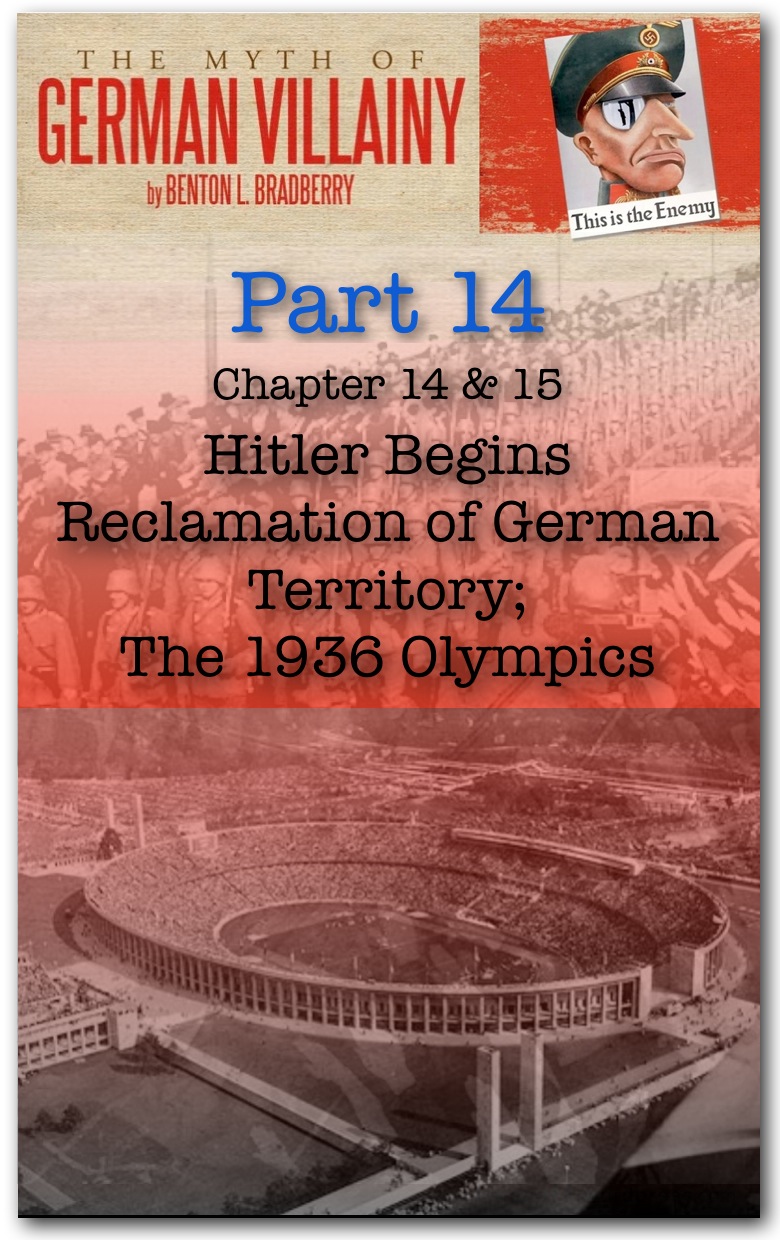
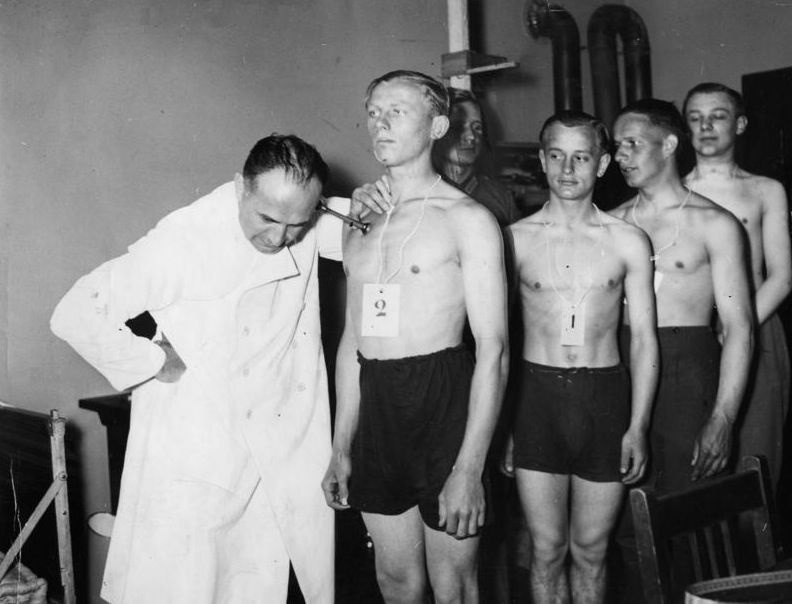

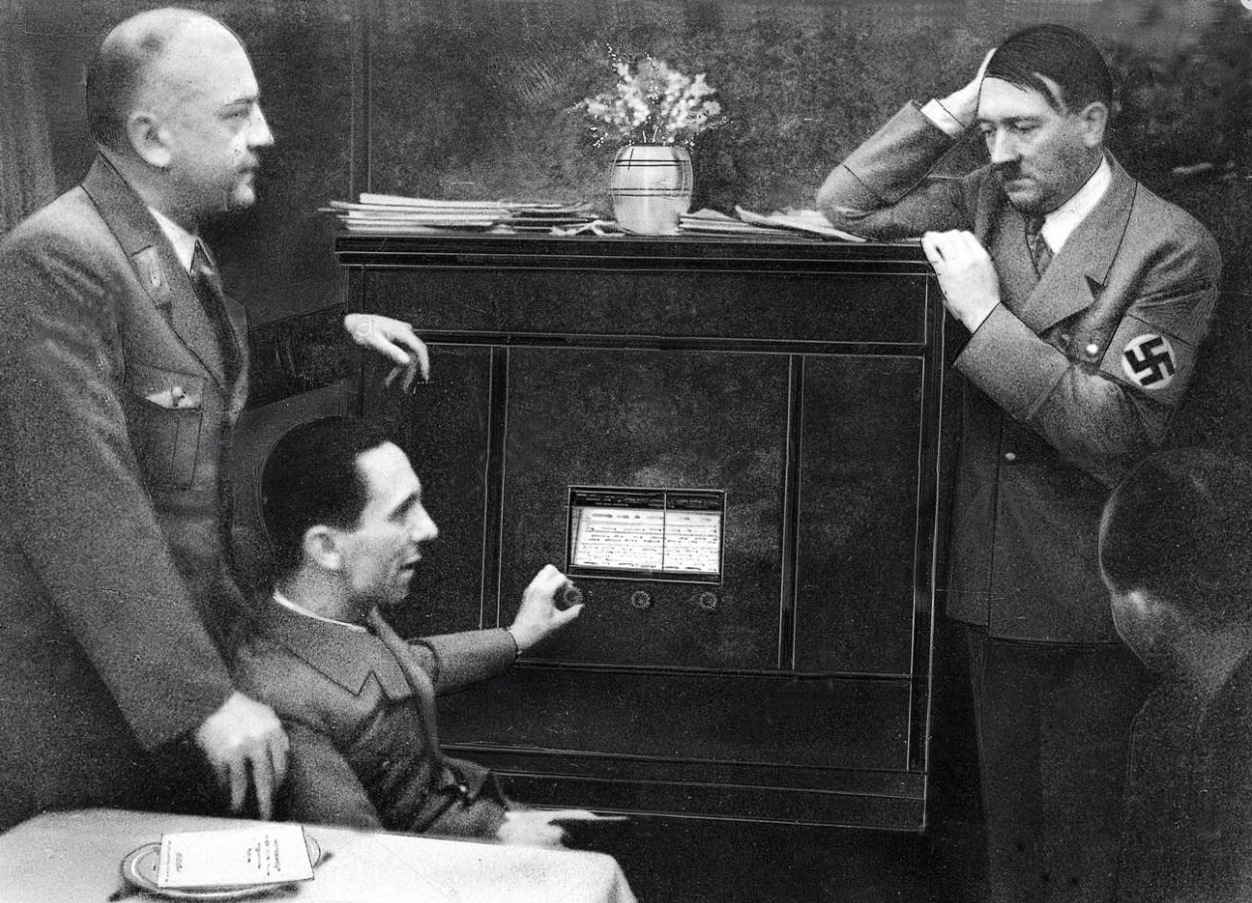
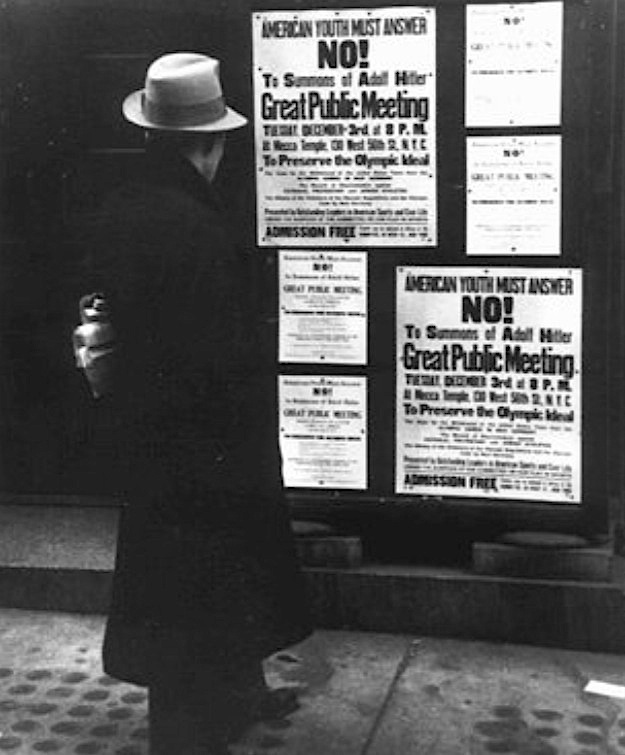
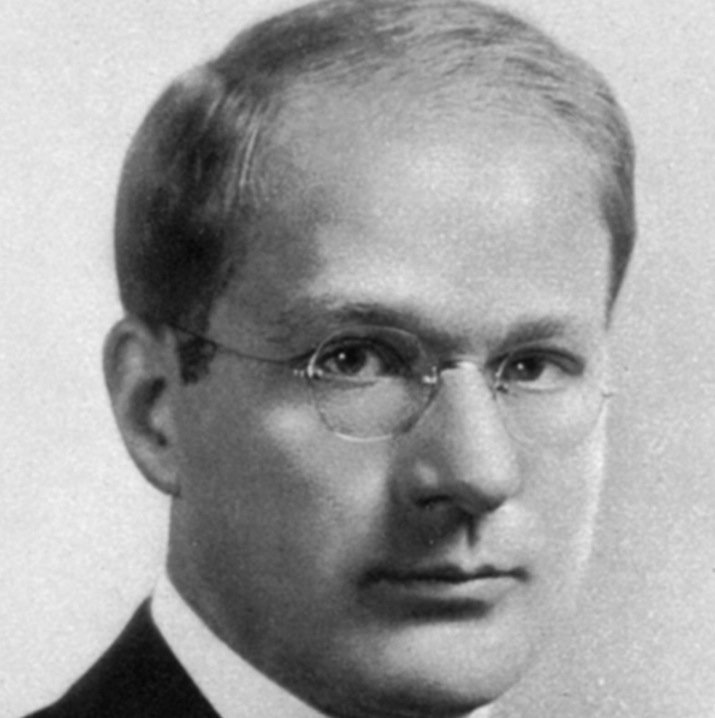
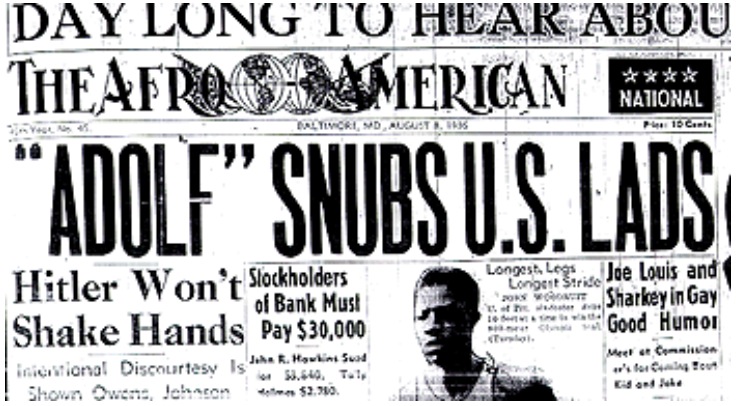
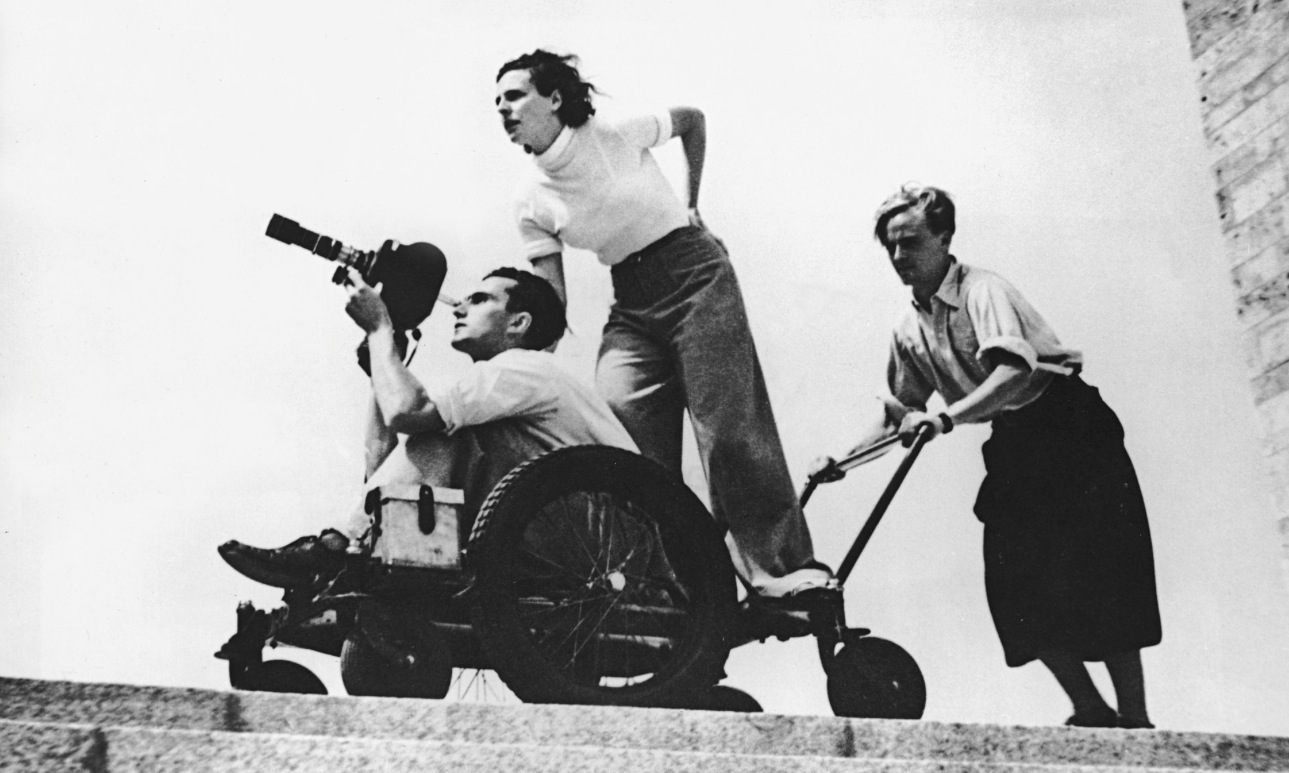
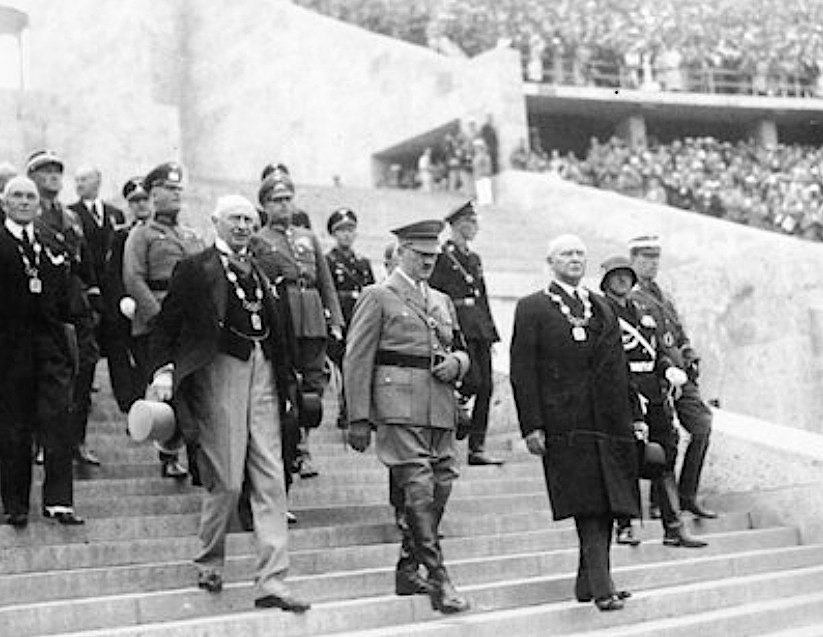
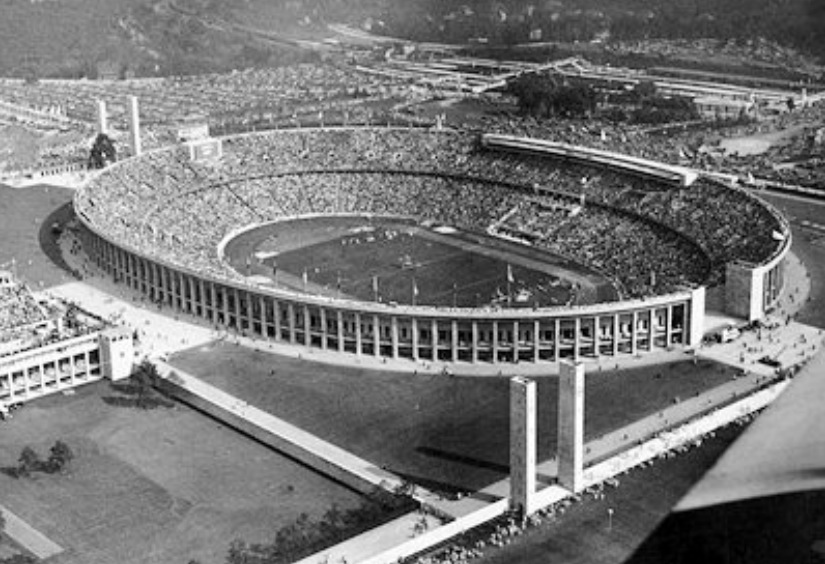
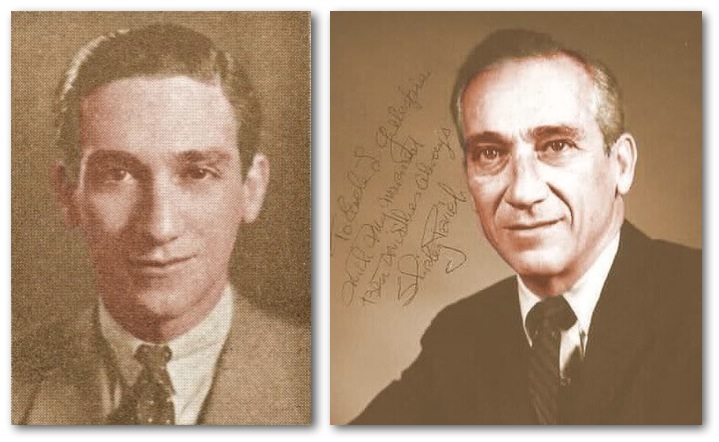

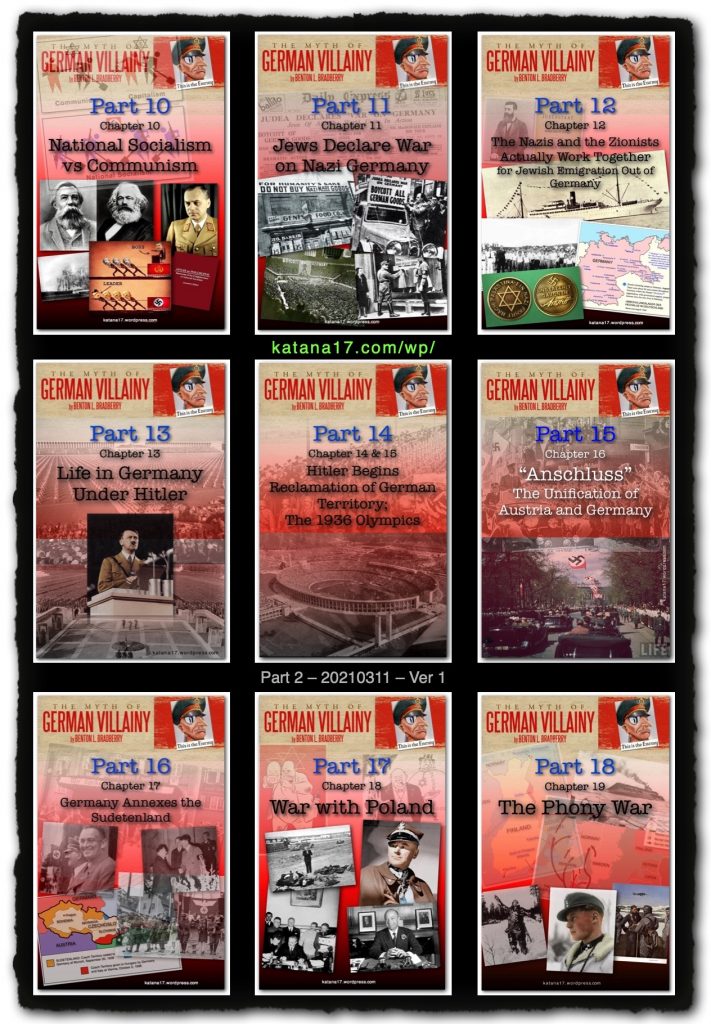


Pingback: Book - The Myth of German Villainy - Part 08 - Jews in Weimar Germany - katana17katana17
Pingback: The Myth of German Villainy: Author Ben Bradberry Interview — TRANSCRIPT - katana17katana17
Pingback: Book - The Myth of German Villainy - Part 02 - Aftermath of the War in Germany - katana17katana17
Pingback: Book - The Myth of German Villainy - Part 05 - The Red Terror - katana17katana17
Pingback: Book - The Myth of German Villainy - Part 07 - The Nation of Israel - katana17katana17
Pingback: Book - The Myth of German Villainy - Part 11 - Jews Declare War on Nazi Germany - katana17katana17
Pingback: Book - The Myth of German Villainy by Benton Bradberry - Part 01 - katana17katana17
Pingback: Book - The Myth of German Villainy - Part 03 - The Jewish Factor in the War - katana17katana17
Pingback: Book - The Myth of German Villainy - Part 16 - Germany Annexes the Sudetenland - katana17katana17
Pingback: Book - The Myth of German Villainy - Part 22 (last) - Winners and Losers - katana17katana17
Pingback: Book - The Myth of German Villainy - Part 06 - The Bolshevik Revolution Spreads throughout Europe - katana17katana17
Pingback: Book - The Myth of German Villainy - Part 09 - Hitler and National Socialists Rise to Power - katana17katana17